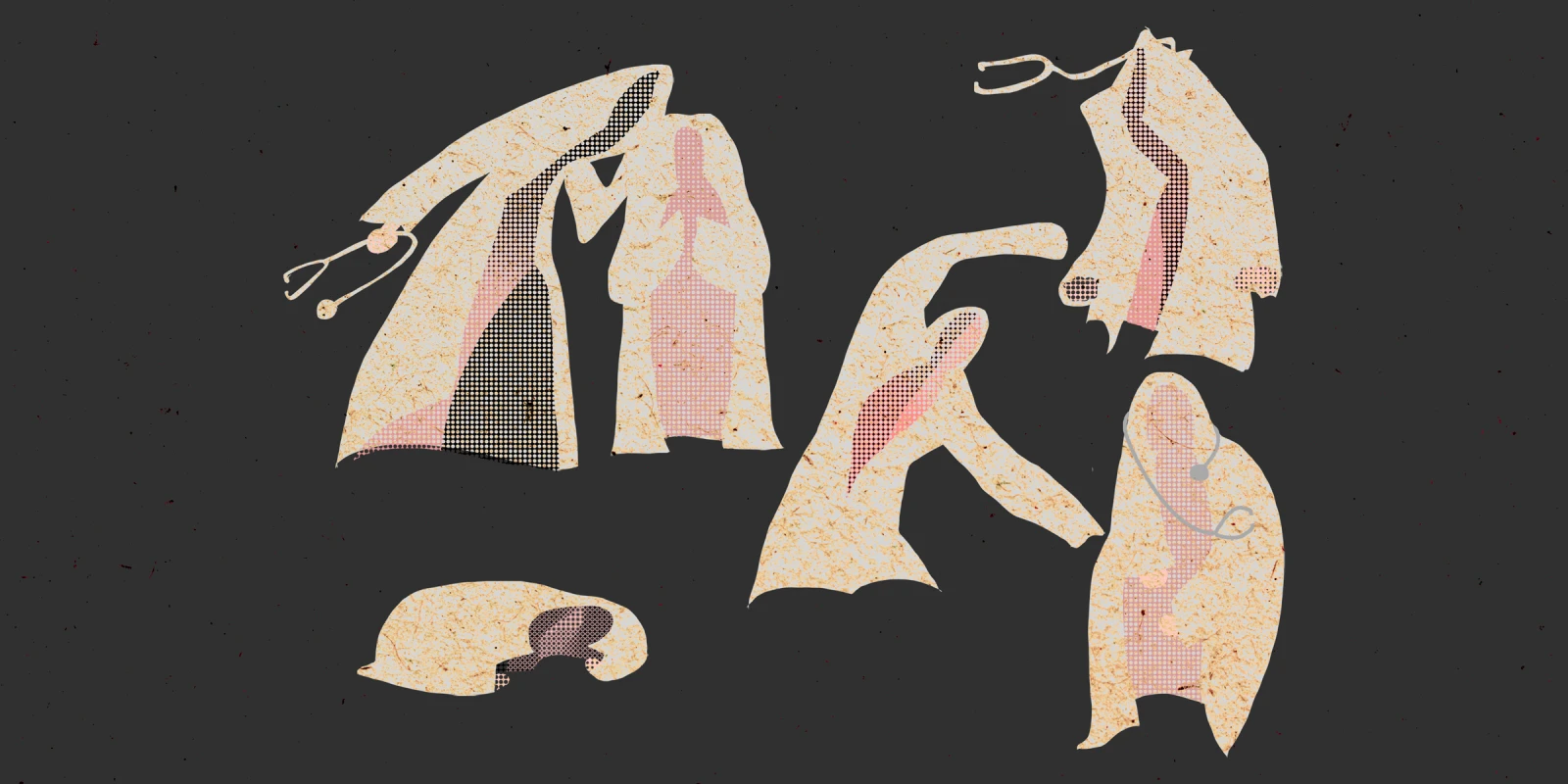I recall a particularly tense interaction on my surgery rotation in medical school. The sub-intern on our team, a dedicated classmate of mine, was instructed to carry the call pager one Friday afternoon, to the undue chagrin of the team’s NP. With an irritated toss of her hair, eyes rolling with exasperation, the NP snappily handed off the pager to our sub-intern. “Ugh, this is going to slow us down so much, but I guess this is how we’re doing things now!” she snarked in an exaggerated whisper that was clearly meant to be heard.
During morning rounds on my OB rotation, after several nights of little sleep and a 24-hour call shift, I found myself nearly fainting and missing pieces of our team discussion. I asked my attending physician, “I’m sorry, can you tell me again what the frequency of vaginal checks should be?” I watched the attending whirl around furiously, as though my question were beyond unreasonable and insulting. “WHAT DID I JUST SAY?!” she shrieked at me in full view of the nursing station and any nearby patients. “WHAT DID I JUST SAY?!”
Her disproportionate anger seemed to extend forever, and I shrunk into myself, hating the pitying stares of everyone in the vicinity. Our NP pulled me aside, noting the tears of humiliation in my eyes. “You’re doing fine,” she whispered, putting an arm around me. “I’ll calm her down.” But the damage was done, despite the NP’s kind intervention. Thanks to that attending physician, I learned to loathe the labor and delivery unit, and that experience is one of the many reasons that I chose not to pursue ob/gyn, despite initially planning to do so upon entering medical school.
Medicine is an exercise in delayed gratification and sacrifice. My colleagues and I have devoted years of our lives and a small fortune to our education, sacrificing sleep, self-care, seminal moments with friends and family, and, in some cases, close relationships for this profession.
Adding insult to injury, medical students often feel undervalued, in fact, unwanted in the clinical environment. “What is the point of medical students doing a 24-hour shift? I’m mostly ignored anyway,” laments one third-year student on X.
I recall as a student voicing the same opinion, only to be told sternly by several supercilious residents, “It’s a good learning experience for you” — the insufferable “Because I said so!” of the medical profession.
But it was very difficult to be appreciative of a learning experience that involved exasperation at my mere presence and derision whenever I would make an honest mistake or have the temerity to ask a question of my residents or attendings, as I navigated the uncharted waters of the hospital. I imagine many other young doctors feel similarly.
The mental health consequences of workplace bullying — and let’s call this what it is: bullying — are significant. Victimization by workplace bullying is significantly associated with subsequent suicidal ideation; one study found a twofold increase in odds for suicidal ideation over a five-year period.
Physicians are certainly not immune to these mental health consequences. Although widely regarded as more resilient than the average person, our suicide rate is higher than the national average. Regular calls for action and articles about burnout accompanied by pithy hashtags abound when one of our own sadly takes their life.
Yet bullying persists in medicine, comes from all corners of the field, and shatters student morale, even discouraging them from certain specialties, or from the profession as a whole.
Now a resident myself, I am utterly scornful of medical staff who treat students with contempt and mockery. I usually conclude my observations of these cruel episodes with a profanity-laced tirade in the safety of the resident room, a semi-regular phenomenon to which my co-residents can definitely attest. Why in the world would you work in an academic medical center if you’re going to be awful to medical students?
More than that, I am disappointed. I am truly disappointed in the professionals who have chosen to pursue a calling that is rooted equally in empathy and compassion as it is in science, and who, paradoxically and inexplicably, insist on perpetuating a toxic culture.
But there are small moments when I cautiously hope for better. I recently watched my hospital medicine attending physician firmly step into a group chat where three clinicians inappropriately ganged up on our sub-intern after she articulated her concerns about the care of one of her patients. Thankfully, my attending intervened to protect the student, who was clearly distressed by the group’s unprofessionalism and defensiveness and who was decidedly on the unfavorable end of a vicious power differential. Her hurt was palpable, and I, in turn, hurt for her.
Thus, I am grateful to this attending for modeling the compassion, decisiveness, and supportive culture that I want to be able to show my trainees someday.
And for everyone else — seasoned physicians, pharmacists, nurses, and more: a little humility and empathy go a long way. It would be nice if we could all remember that each of us was a student once — vulnerable, uncertain, learning, and internally begging someone to tell us, You belong here. You have value.
Remember how anxious you felt at being a novice, terrified of failure and ridicule?
So do I. Don’t make someone else feel that way.
What steps can you take to prevent workplace bullying? Share in the comments.
Chloe Lee is a resident physician in psychiatry. Her interests include psychotherapy, narrative medicine, trauma disorders, and women's mental health.
Illustration by Jennifer Bogartz





